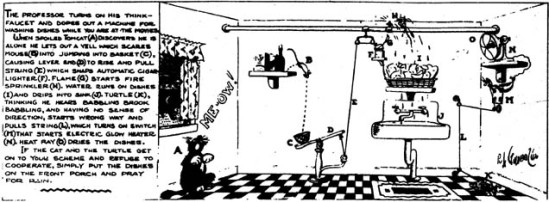Abstract for Ilka Brasch’s talk at the symposium “Imagining Media Change” (June 13, 2013, Leibniz Universität Hannover):
Facilitating Media Change: The Operational Aesthetic as a Receptive Mode
Ilka Brasch
When the Scientific American published Eadweard Muybridge’s famous photographs of a horse in motion on October 19th, 1878, the magazine advised its readers to cut the images and mount them into the drum of a zoetrope. By means of this nineteenth-century optical toy, the readers could then prove whether Muybridge’s photographs really did depict the movement of a horse during gallop (Newhall 43). In addition to being one historical instance of media change, the example describes an engagement with media that exceeds a simple acknowledgment of mediated content. The tinkerer’s play with technology, I argue, relates back to what Neil Harris termed the operational aesthetic: a critical engagement with the nature and structure of an artifact, which then allows for the observer to judge about its truth value (Harris 79).
Tracing the history of a critical engagement with developing machines, or ‘new media’, since the 1840s, I will establish the operational aesthetic as a particular mode of engagement with media. That receptive mode then influenced the ways in which tinkerers, operators, or spectators experienced media change. Although media change itself impacts the operational aesthetic, that particular receptive mode also impacts the engagement with ‘new media’. As a final step, I will consider how the operational aesthetic influenced, and was changed itself, during the spectators’ engagement with silent film serials up to the 1920s. All in all, the presentation will serve to offer the operational aesthetic as one way of imagining media change.
Harris, Neil. Humbug: The art of P. T. Barnum. Chicago: The University of Chicago Press, 1973.
Newhall, Beaumont. “Photography and the Development of Kinetic Visualization” Journal of the Warburg and Courtauld Insitutes, 7 (1944): 40-45.

